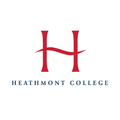Heathmont College Belonging Policy

Heathmont College has been working towards creating a policy which will act as a guide in which staff, students and parents are encouraged to create and feel a sense of belonging at Heathmont College.
Throughout the year, we have sought feedback from staff, students and parents to help us guide what to put in the policy. Below, we have a draft of a policy that we would like our community to read and give us some feedback on. If you have any feedback (such as what you like, or what you think needs to be changed and/or omitted etc), please do not hesitate to send an email to shane.hunt@education.vic.gov au.
School Belonging Policy - Draft
Rationale
School belonging—or a sense of psychological membership at school—represents the extent to which students feel accepted, respected, included, and supported in their school environment (Goodenow, 1993). When students have a sense of school belonging, they feel confident that they fit in and feel safe at school (Riley, 2017). A sense of school belonging is a complex and multifaceted phenomenon that is influenced by many factors and variables within a school setting, including individual differences (Allen et al., 2018a). Yet it is important to keep in mind that policies can promote or hinder the extent to which all students—regardless of their background, ability status, gender identity, racial identity, or sexual orientation—have opportunities to belong at school. School belonging has been found to be an essential component for student wellbeing, academic outcomes, and physical health (Allen et al., 2018a; Arslan, 2018; Arslan et al., 2020; Abdollahi, 2020) and should be valued and prioritised in schools (Allen et al., 2018b). It is estimated that approximately 1in 3 students does not feel a sense of belonging to school (OECD, 2019). Therefore, to address this issue a student’s sense of school belonging should be valued and nurtured within school settings (Allen, 2020a).
Background
Identified in Heathmont College’s Annual Implementation Plan for 2023, a focus was to develop a whole-school culture that emphasises the importance of belonging and community connectedness for student engagement and learning. The policy has been developed through consultative process across the Heathmont College community by collation of student survey data, parent survey data, staff professional learning activities, Strengthening Professional Capability of Principals’ in Koorie Education (SPPIKE) training, School-Wide Positive Behaviour Support (SWPBS) and as a focus for Professional Learning Communities (PLCs).
Purpose
The purpose of this policy is to outline the shared responsibility for belonging by the whole school community inclusive of parents, staff, teachers, students, and school leadership. Every individual within the school community can help create a climate of belonging.
Scope
This policy outlies the role that students, teachers, staff, school leaders, and parents play in promoting a sense of belonging for others in the Heathmont College community.
Policy Statement
Heathmont College is committed to providing consistent and structured opportunities for students to build positive relationships with each other, their teachers, their parents, and staff at our school. Teachers at our school know their students and seek feedback from their students about their relationship, rapport, and level of engagement. Through school-wide events, assessments, and programming, we provide both time and space for teachers to build relationships with their students (Shochet et al., 2011; Waters et al., 2010). School leadership creates formal structures to consult students (Heathmont Talks, Principal Advisory Group, formal student leadership structure and membership on the School Council), on school policy decisions and build their sense of agency.
Efforts are made at Heathmont College to ensure continuity of care for students during their time at school (Garcia-Reid et al., 2005; Whitlock,2006). Our school endeavours to employ teachers who are not only skilled in content areas but also culturally competent and sensitive to students’ social and emotional needs (Battistich et al., 1996; Whitlock, 2006). All staff at Heathmont College are provided with opportunity to engage with the Department of Education’s Community Understanding and Safety Training (CUST) through the region (available here https://www.vaeai.org.au/community-understanding-safety-training-online-information-session/). As a college, we completed this training in 2021.
Heathmont College ensures that teachers have access to professional development that encompasses improving student-teacher relationships and ways to foster positive, safe, and fair classroom environments that build on the strengths and assets that students bring into the classroom (Allen et al.,2011; Ingersoll & Strong, 2011).
Heathmont College has strategies in place to evaluate, build, or strengthen a teacher’s sense of belonging to school (e.g., new teacher mentoring, Performance and Development Process (PDP) Coaching and induction programs for new staff) (Ingersoll & Strong,2011).
Heathmont College implements programs, interventions, and/or classroom-based curriculum that teaches social, emotional, and cultural competencies to students (E.g. SWEL, Nourish) (Allen et al., 2017; Frydenberg, 2009; Schonert-Reichl & Lawlor, 2010).
Heathmont College has a comprehensive and tiered approach to preventing, identifying, and managing mental health concerns (Waters et al.,2010; Wilkinson-Lee et al., 2011; Roche & Kuperminc, 2012).
Staff
Staff at Heathmont College acknowledge that a positive student-teacher relationship is one of the most effective ways to build a student’s sense of school belonging (Allen et al., 2018a).
Staff are encouraged to uphold the College values of Compassion, Curiosity and Community. Staff actively support each other professionally by demonstrating behaviours consistent with Heathmont College’s Staff Cultural Action Plan.
Staff at Heathmont College are encouraged to provide personal support, affirmation, and inspiration for learning, as well as academic support to students (Shochet et al., 2011; Waters et al., 2010).
Staff at Heathmont College are encouraged to know their students. Staff endeavour to address students by name and will know the students as learners and individuals.
Staff actively emphasise the value, and practice School Wide Positive Behaviours (SWPBS) to improve social, emotional, behavioural and academic outcomes for children and young people
Staff at Heathmont College demonstrate fair and consistent Restorative Practices approaches to issues of school discipline (Sakiz, 2012) that are underpinned by the SWPBS Framework and partnership with Real Schools program.
Staff at Heathmont College provide students with opportunities for personal agency over their learning (Wentzel, 1998; Ryzin et al.,2009).
Staff make regular (positive) contact with parents for proactive and positive communication (Allen et al., 2020; Reschly et al., 2008).
Staff are supported to provide meaningful and quality education to Aboriginal and Torres Strait Islander students. Staff are also supported to teach the histories and cultures of First Nations People in a respectful and culturally inclusive way.
Students
Heathmont College encourages students to support each other academically as well as personally (e.g., peer mentor programs, lunchtime clubs/activities, home-work club, Nourish) (Reschly et al., 2008; Ryzin et al., 2009).
Students are encouraged to uphold the College values of Compassion, Curiosity and Community.
Heathmont College has transition programs at key transition points for students (Ryzin et al., 2009).
All students at Heathmont College are expected to be inclusive, respectful, and affirming toward each other (Goodenow & Grady, 1993; Reschly et al., 2008).
Students are encouraged to have high personal expectations and goals around their learning and social wellbeing, with assurance that teachers will support them in reaching these high standards (Heaven et al., 2002; Klem & Connell, 2004; Guthrie & Davis, 2003; Zimmer-Gembeck et al.,2006).
At Heathmont College, all students are encouraged to use their personal strengths (Proctor et al., 2011) and are made aware that they all have a role to play in contributing to a culture of belonging at their school (Allen, 2020b).
Parents
Parents of Heathmont College are encouraged to be involved in school life in meaningful ways (Reschly et al., 2008).
Heathmont College provides multiple communication channels for parents that consider their needs and preferences (Reschly et al., 2008).
The school seeks feedback from parents about their overall satisfaction with Heathmont College and communication from staff and school leaders more generally (Reschly et al., 2008).
Heathmont College aims to make parents feel welcomed when they are at school.
Educational opportunities for parents that enhance their connectedness and belonging with the school and their children are available throughout the year (Kelly et al., 2012; Stoddard et al., 2011; Waters et al., 2010)
Heathmont College will continue to seek ways to improve engagement with families and the wider community.
Shane Hunt
Community Relationships & Connectedness
